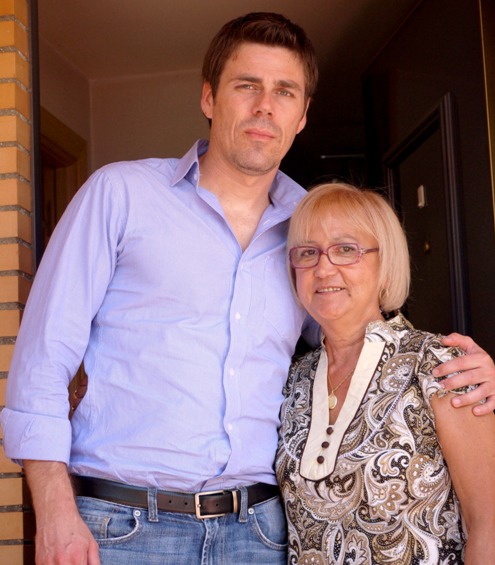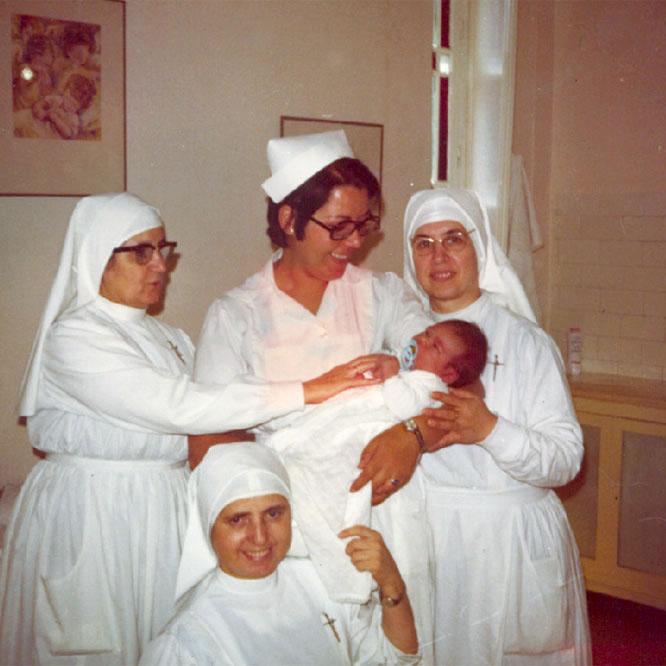The scale of the operation was hard to take in, as was the extent of the cover-up. Between 1940 and 1990, it’s estimated that up to 30,000 babies were trafficked in Spain. It started under the military dictatorship of Franco, but it ended long after its fall, though why the sudden cut-off was given as 1990 we never learned. What we did learn was this: that newborn babies were systematically taken by mothers deemed to be ideologically or morally unfit, and they were often bought by couples for cash. Within hours of giving birth these mothers were told that their babies had died.
So grotesque was the story that unfolded in Katya Adler’s extraordinary documentary that it seemed to come fresh from the pages of a dystopian sci-fi novel – Margaret Atwood’s The Handmaid’s Tale naturally sprang to mind. But if the grotesque can be imagined in fiction then it can be realised in fact, and it can be realised with the collusion of those institutions that are often the most trusted: the medical profession and the church. So, with the enthusiastic backing of doctors, priests and nuns a baby-snatching service was operated for 50 years. And what began for wretchedly ideological reasons quite clearly ended as a money-making scam. In fact, the two seemed to go conveniently hand in hand.
Parents who had 'adopted' these offspring would often make their payments on a kind of hire purchase plan
Parents who had “adopted” these offspring – and they were legally named as the birth parents on the birth certificates – would often make their payments on a kind of hire purchase plan that lasted for years. God knows what would happen if the agreement broke down and cash was no longer forthcoming. As for convincing mothers that the apparently healthy children they'd just given birth to were now dead, it was alleged that stillborn babies were kept in freezers and wheeled out for last goodbyes. Many years later exhumed graves revealed only stones and fragments of adult bone.
Personal testimonies were harrowing, though admittedly you did wonder how one story managed to fit into the overall picture when we saw an elderly gentleman break down in tears outside the gates of his old church-run children’s home. His mother had died during interrogation, and his father had been executed not long after Franco had taken power. He recalled that each morning the children would sing songs in praise of the Falangists. It was a story that exposed the catastrophic wickedness of the regime, though not necessarily the allegations at hand.
 But we certainly weren’t short of those. One mother whose story we followed carefully was Manoli’s. She told us she’d always believed her son to be alive, and there were enough good reasons for thinking so. Now, with the help of her daughter, Mar, she would find him – “I think it will be us victims left to do the investigations,” Mar told us.
But we certainly weren’t short of those. One mother whose story we followed carefully was Manoli’s. She told us she’d always believed her son to be alive, and there were enough good reasons for thinking so. Now, with the help of her daughter, Mar, she would find him – “I think it will be us victims left to do the investigations,” Mar told us.
Through the daughter’s efforts a plausible match was found: Randy Ryder was a Texan born in Spain in the early Seventies (main picture and pictured above: Randy and Manoli). He’d found out about his origins only after he’d become a parent himself: his elderly, possibly senile grandmother had let slip that there were no blood ties when he’d commented how little his own son resembled the rest of the family. And so it was an emotional meeting that took place as Ryder arrived in Madrid ready to hear the results of DNA swabs. Manoli and Mar were convinced of a family likeness, Randy was hopeful but cautious. But the tests proved negative, and the three lives that had already been broken by church and state were left just that little bit more broken.















Add comment